Profile: Yahya Sinwar, iconic Hamas leader and flagbearer of resistance dies on the frontline
By Press TV Website Staff
Yahya Sinwar, leader of the Gaza-based Hamas resistance movement, was found dead in southern Gaza’s Rafah city on Thursday, wearing a combat vest with an AK-47 rifle by his side.
The charismatic and courageous leader of the Palestinian resistance against the Israeli occupation and the key mastermind of Operation Al-Aqsa Flood, Sinwar figured high on the regime’s ‘kill list’.
He escaped many assassination attempts before and after the events of October 7 and played an instrumental role in coordinating and supervising resistance operations in Gaza in the past year.
While many believed that Sinwar was hiding in underground tunnels scattered across the besieged Palestinian territory, pictures that emerged on Monday and circulated at a dizzying pace on social media platforms showed him above the ground and in active combat with the occupation forces.
In a statement on Friday, Hamas resistance movement confirmed his assassination. Speaking in a televised address, Khalil Hayya, head of Hamas in Gaza, commemorated the “the memory of the fallen martyr, Yahya Sinwar,” describing him as “steadfast, brave and intrepid” fighter.
Sinwar “sacrificed his life to the cause of our liberation,” he added.
“He met his end standing brave, with his head held high, holding his firearm, firing until the last breath, until the last moment of his life," said the Hamas official.
“[Sinwar] has lived his whole life as a holy fighter. Since his early days, he was engaged in his struggle as a resistant fighter. He stood defiant behind Israeli bars and after his release in a swap deal, he continued with his struggle and his dedication to the cause.”
Sinwar, who succeeded Ismail Haniyeh as the head of the political bureau of Hamas in early August after the latter’s assassination in Tehran, led the resistance movement from the front in the battlefield.
He had on numerous occasions spoken about his desire for martyrdom, unafraid of confronting the enemy in the battlefield. His military acumen and powerful oratory made him a beloved commander.
In an undated video circulating online, Sinwar eloquently spoke of his desire for martyrdom, saying the “greatest gift” the enemy could give him was to kill him. “I prefer to be martyred,” he remarked.
Sinwar’s emergence on the scene
Yahya Ibrahim Hassan Sinwar, commonly known as ‘Abu Ibrahim’, was born on October 19, 1962, in a refugee camp west of the city of Khan Yunis in the southern Gaza Strip.
His family came from al-Majdal Asqalan, a Palestinian village in the area of today's Ashkelon, from where they were expelled in 1948 during the Zionist ethnic cleansing of the native Palestinian population.
Sinwar received his primary education in his neighborhood and secondary education at Khan Yunis Secondary School for Boys, after which he enrolled at the Islamic University of Gaza for a degree in Arabic literature.
As a student, he worked in the Student Council of the Islamic University for 5 years, serving as the Secretary of the Artistic Committee, followed by the Sports Committee, Vice President, and President of the Council.
He eventually rose through the ranks to become the Vice President again from 1982 to 1987.
While at university in the early 1980s, Sinwar joined the Islamic Student Bloc, a precursor to the Hamas resistance movement, as part of a group of young people that included his contemporaries, Ismail Haniyeh, Khalil al-Hayya, and others.
He led the Islamic Bloc and gained a reputation in general student debates between different Palestinian blocs, becoming one of the most notable theorists of the bloc.
During those years, Sinwar also played a key role in establishing the first Islamic art group in Palestine, known as "Al-A’idoun" (The Returnees), with the blessing of the founding leader of the Hamas resistance movement, Sheikh Imam Ahmed Yassin.
In 1983, he participated in founding the first security apparatus for the movement, known as the Security of the Call, under the leadership of Sheikh Yassin.
Three years later, Sheikh Yassin tasked him and other young activists with forming the Jihad and Da'wa Organization (Majd), where he became one of its most prominent leaders.
This network of fighters, established to launch armed resistance against the occupying Israeli regime, would later become the Ezzedine al-Qassam Brigades, the armed wing of Hamas.
Sinwar directed and led many popular confrontations with the Zionist entity from 1982 to 1988, and was arrested several times, starting in 1982 when he was sentenced to six months in the Fara'a prison due to his resistance activities.
In 1988, he was arrested again and sentenced to four life sentences, serving 23 consecutive years in Israeli prisons, nearly four of which were spent in solitary confinement.
During his incarceration, Sinwar assumed leadership of the High Command of Hamas prisoners in Israeli prisons several times, and along with his comrades, led a series of hunger strikes in 1992, 1996, 2000, and 2004.
Sinwar’s rise through the ranks
In 2011, he was released from the Israeli prison. Sinwar himself had a significant impact on the terms and conditions of the deal, leading the Zionist regime to isolate him before the deal was completed.
A year later, he was elected as a member of the political bureau of Hamas in Gaza and took responsibility for the security. After that, he was elected as a member of the general political bureau and took responsibility for the military file of the movement.
In 2015, he was assigned the responsibility of the file concerning Israeli prisoners held by the al-Qassam Brigades, the military wing of the Hamas movement, and the same year, the United States included him on its so-called blacklist of "international terrorists."
Sinwar was elected head of the political bureau of Hamas in Gaza in February 2017 and re-elected for a second term in 2021.
He survived multiple assassination attempts. His home was bombed and destroyed in 1989, a second time in 2014, a third time in 2021, and a fourth time during the ongoing genocidal war on Gaza in December 2023.
On August 6, 2024, he was elected head of the political bureau of Hamas, succeeding Haniyeh, who was assassinated in the Iranian capital by the Israeli regime.
Osama Hamdan, one of the leaders of the Hamas resistance movement, emphasized that the election of Sinwar by unanimous votes showed that Hamas understood the nature of the current stage of war with the Israeli occupation.
Hamdan noted that the message of Hamas was that it elected a leader who had been a trustee of struggle and fighting on the battlefield in Gaza for more than 300 days – since Oct. 7, 2023.
Sinwar – a fighter, a writer, a thinker
Sinwar was remarkably fluent in Hebrew, apart from Arabic, and had many political and security-related writings and translations to his name, which gave a sneak peek into his mind.
A closer examination of his writings, speeches, and public statements showed he was driven by a strong and unwavering philosophy of resistance and and how to resist and fight the enemy.
In his 2004 autobiographical novel, Thorns and Carnations, Sinwar explored themes of resistance, resilience, self-reliance, sacrifice, and security through two fictional characters, Ahmad and Ibrahim.
Ahmad’s experiences reflected the harsh realities of life in Palestine, including resistance, martyrdom, and occupation. Ibrahim, on the other hand, represented ideal leadership qualities such as self-made success, personal responsibility, and intellectual freedom.
For 23 years spent in various Israeli prisons, Sinwar used the opportunity to learn Hebrew, the language spoken by his enemy, and spent a lot of time studying the history of Jews.
He translated the books "Shabak Between the Remains" and "Israeli Parties" in 1992 and authored the books "Hamas: Experience and Mistakes" and "Al-Majd," which documents the work of the Israeli spy agency Shin Bet.
After his release from Israeli prisons in the "Wafa al-Ahrar" prisoner exchange deal in 2011, he got married in 2012.
He had three children – two sons (Ibrahim and Abdullah) and a daughter (Reda).
Sinwar, an eternal hero
Following the confirmation of his assassination, users on X (formerly Twitter) lauded Sinwar's bravery, highlighting his role in fighting shoulder-to-shoulder with resistance fighters against Israeli forces.
Egyptian-American television host and surgeon Bassem Youssef described Sinwar as a "resister" who defended his land against the Israeli occupation for years.
“Yahya Sinwar was a resister, not a terrorist. Yahya Sinwar was defending his land against the most despicable people in the history. God save Gaza and Palestine,” he wrote.
Yahya Sinwar was a resister, not a terrorist Yahya Sinwar was defending his land against the most despicable people in the history.
— Bassem Youssef Commentary (@bassem_youssef9) October 17, 2024
God save Gaza and Palestine. pic.twitter.com/UQmxQxiLaB
A user named ‘Omar from Gaza’ shared an iconic photo of Sinwar sitting on a couch after his house was bombed by the occupation forces years ago, saying the path of Sinwar and resistance will be continued.
He also noted that the Israeli regime has so far assassinated “hundreds of leaders,” but “the result has always been the opposite: the resistance grows fiercer, stronger, and more determined.”
“We will all walk the path of resistance and the path of Sinwar. If they kill Sinwar today, a hundred Sinwars will emerge to take his place. If Israel thinks that by killing Yahya Sinwar it will stop the Palestinians from defending their land, it is mistaken. Israel has killed hundreds of leaders, including Yasser Arafat (Abu Ammar), Ahmed Yassin, Abdul Aziz al-Rantisi, Abu Ali Mustafa, Ismail Haniyeh, and many other leaders,” he wrote.
We will all walk the path of resistance and the path of Sinwar. If they kill Sinwar today, a hundred Sinwars will emerge to take his place.
— Omar from Gaza 𓂆 (@OmarHamadD) October 17, 2024
If Israel thinks that by killing Yahya Sinwar it will stop the Palestinians from defending their land, it is mistaken. Israel has killed… pic.twitter.com/JNjLLW7Ib4
Nour Zeidan, a Dallas-based student activist, shared a short but meaningful post stating that Sinwar’s martyrdom is not the end of the path of “liberation and resistance.”
“Yahya Sinwar was found above ground, he was not hiding in a tunnel or among civilians; instead, he was with his fighters at the front line. Our martyrs are not our weakness or shame, they are our pride and strength. Our liberation and resistance continues. Rest in peace,” the user wrote.
Yahya Sinwar was found above ground, he was not hiding in a tunnel or among civilians; instead, he was with his fighters at the front line.
— Nour Zeidan (@nour_zeidan) October 17, 2024
Our martyrs are not our weakness or shame, they are our pride and strength.
Our liberation and resistance continues.
Rest in peace. pic.twitter.com/INGsdgUD2a
A Washington-based journalist and filmmaker, Dan Cohen shared a video of Sinwar fearlessly walking on foot on the streets of Gaza just days after Israel bombed his house and office.
“Yahya Sinwar was a fearless leader who defied the Israeli occupation and prepared the Palestinian resistance for liberation. He was the exact opposite of the Israeli leadership that is celebrating today,” Cohen wrote.
Yahya Sinwar was a fearless leader who defied the Israeli occupation and prepared the Palestinian resistance for liberation. He was the exact opposite of the Israeli leadership that is celebrating today.
— Dan Cohen (@dancohen3000) October 17, 2024
From my documentary 'Gaza Fights Back': https://t.co/STV9VJ1mBt pic.twitter.com/zXobuXv105
VIDEO | Against erasure: Palestinians say survival in Gaza affirms their right to land
BBC bars use of ‘kidnapping’ to describe Maduro’s kidnapping
VIDEO | International cartoon, poster contest 'Online Terror' unveiled in Tehran
VIDEO | Venezuela installs interim president after US kidnapping of Maduro
Iran FM urges world, UN to voice decisive opposition to attack on Venezuela
VIDEO | Moscow vows revenge
Sanctions slow Iran’s 5G expansion despite growth in network rollout
VIDEO | Chinese, South Korean presidents hold summit amid global outcry against US


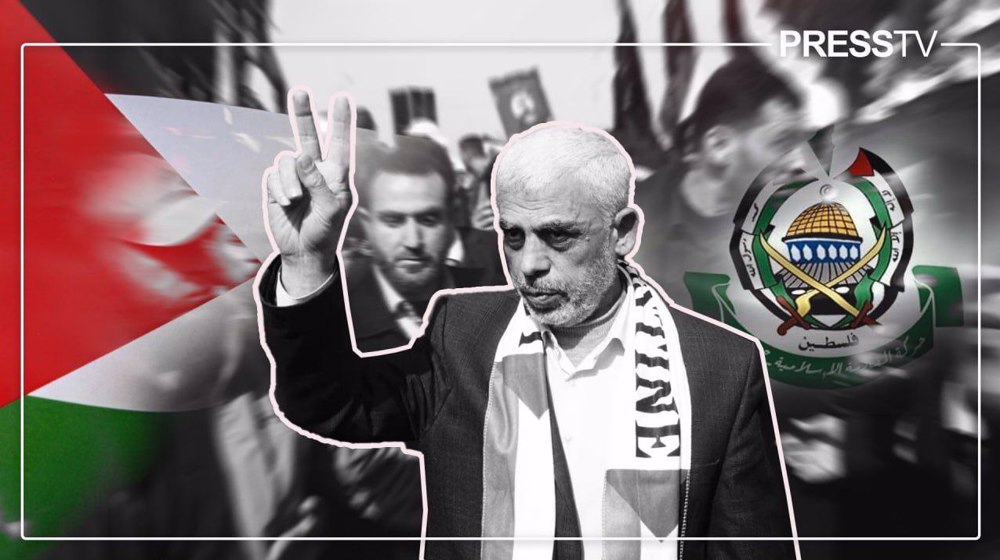
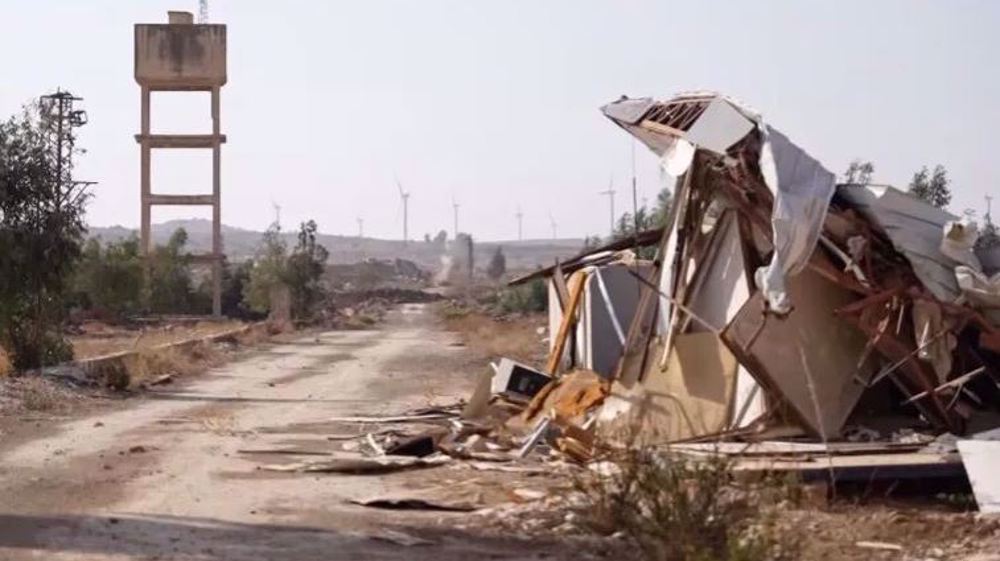
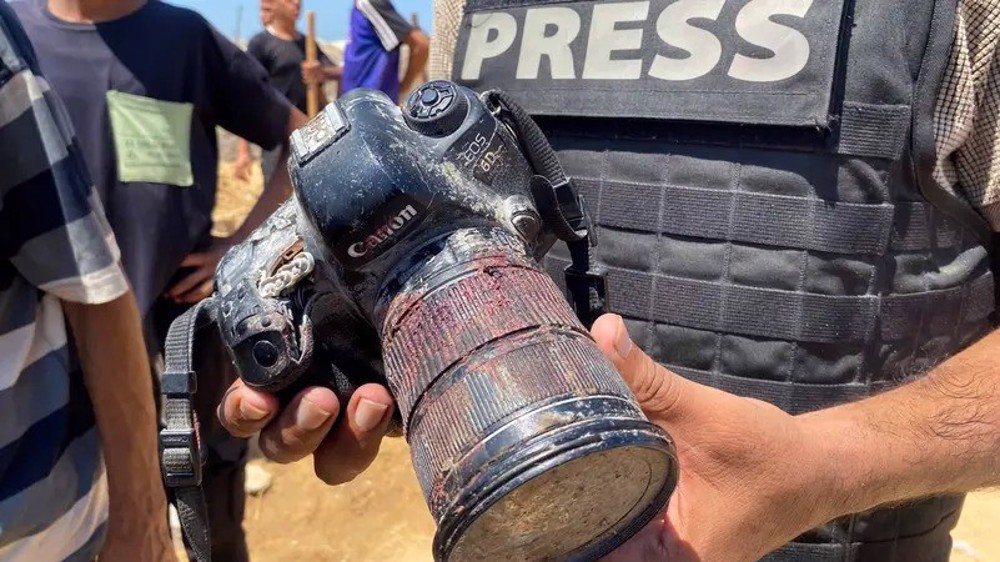
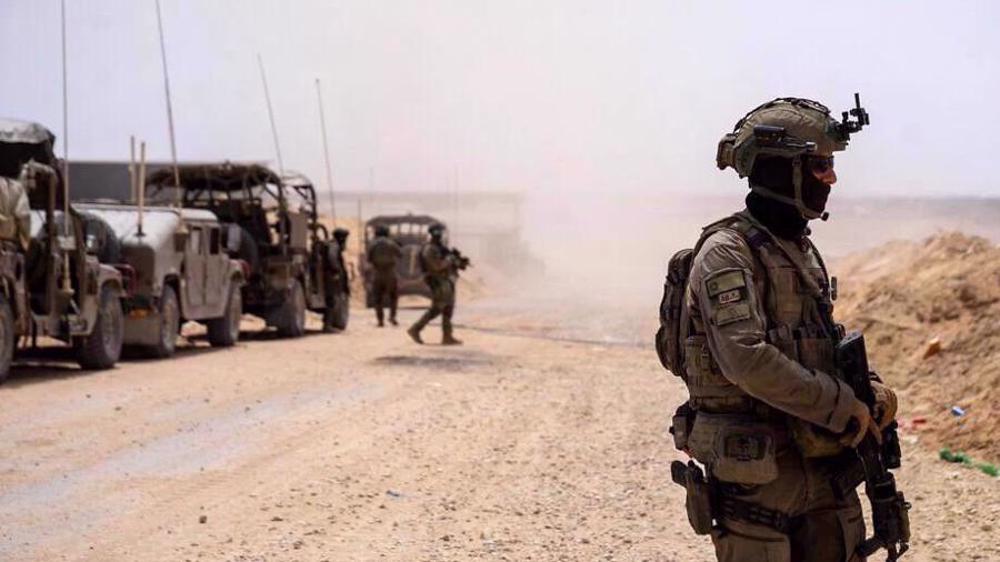



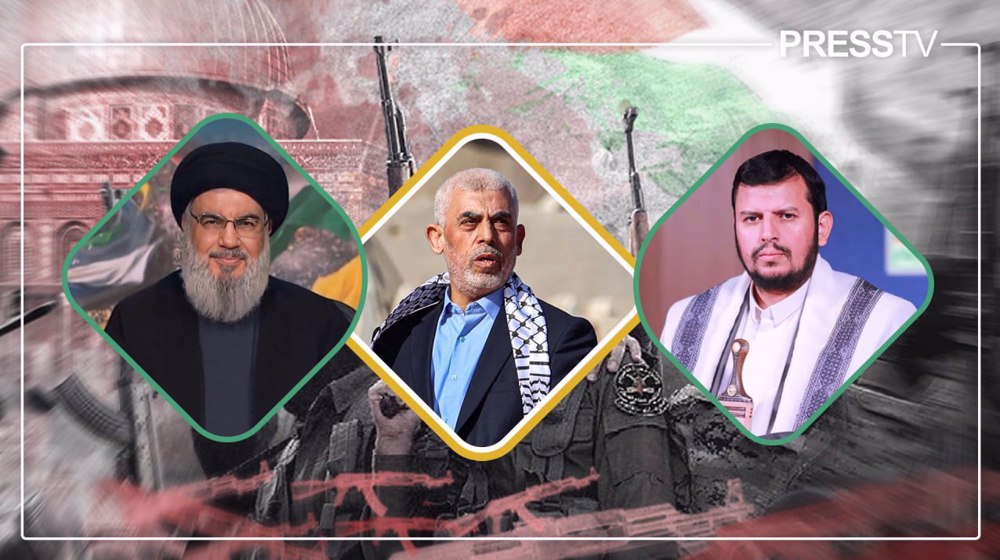
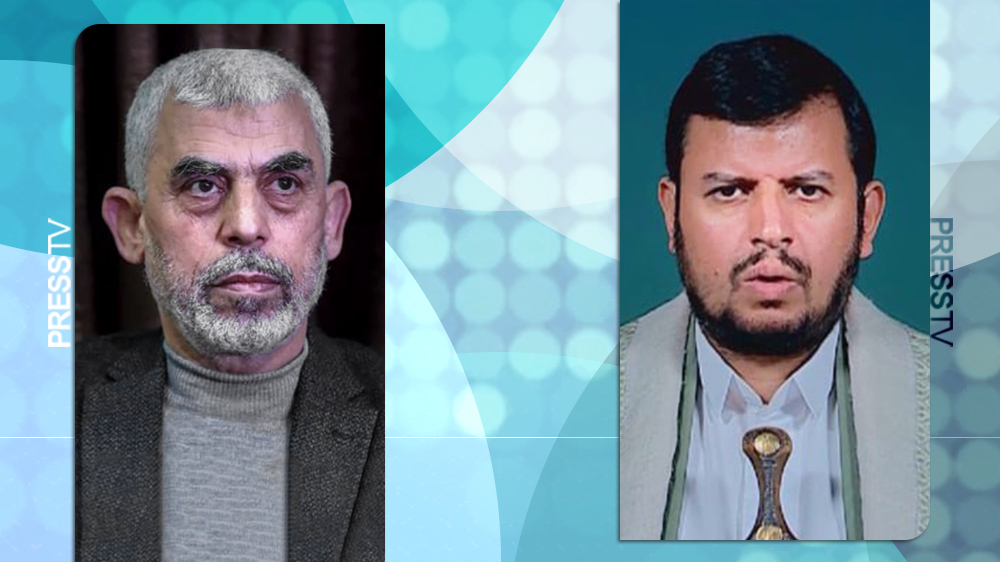
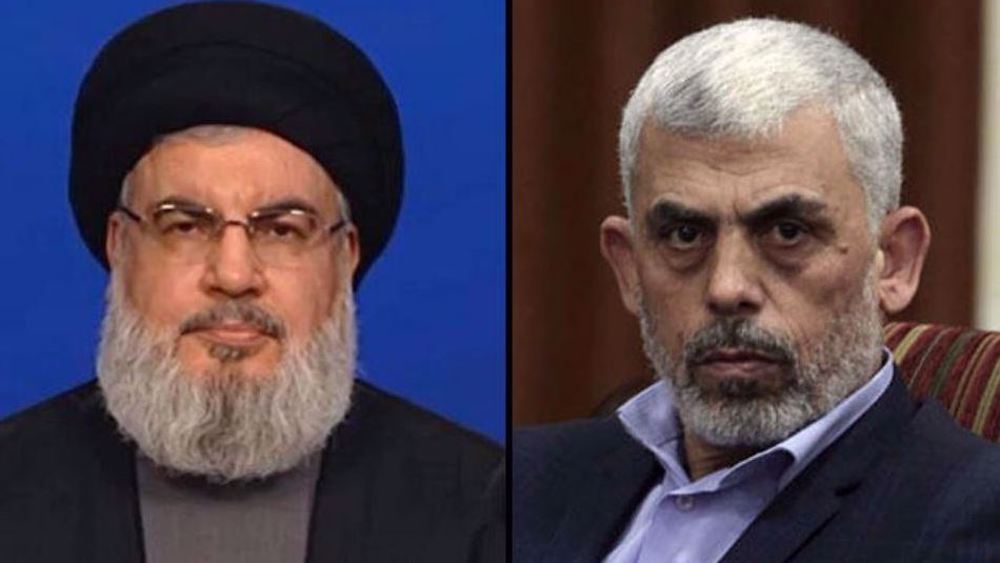

 This makes it easy to access the Press TV website
This makes it easy to access the Press TV website